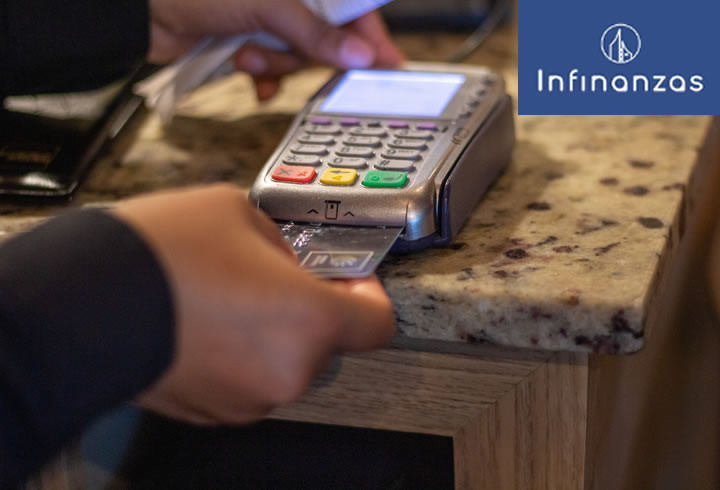Debit cards and credit cards have many things in common. They look almost identical, and both debit and credit cards can provide you with a fast and convenient way to pay, regardless of whether you pay in person, online or over the phone.
But they also have a number of key differences. And understanding those differences can help you maintain a healthy relationship with your finances.
Read on to learn how debit and credit cards work and some of the key differences between the two.
What is a debit card?
A debit card is linked to your checking account and allows you to use the account to make purchases. Debit cards can also be used at ATMs for cash withdrawals and other transactions.
How do debit cards work?
Remember: your debit card is linked to your checking account. So when you use your debit card to pay for something, you are using money you already have, and the funds are deducted directly from your bank account.
If you have enough money in your account when you use your debit card for a purchase, you should be good to go. If you don’t have enough money to cover a purchase, a few things can happen:
Transactions may be declined.
Transactions could be approved. And if you’ve linked your debit card to your savings account, your bank or credit union may automatically transfer funds to your checking account to make up the difference.
Transactions may be approved, but your bank or credit union may charge you an overdraft fee.
Advantages of debit cards
There are advantages to all different types of payment options, including debit cards. Here are some benefits that come with using a debit card:
You can pay with money you already have, without carrying cash or having to write a check.
You can use your debit card at ATMs to get cash, make deposits, transfer money and check your balance.
When you use your debit card to make a purchase at the store, you can often get cash back as part of the transaction. And that can save you a trip to the ATM.
What is a credit card?
Simply put, a credit card allows you to borrow money to make purchases. Every time you use your card, you are borrowing money from a line of credit.
The amount you can borrow is known as your credit limit, which is usually based on multiple factors, including your creditworthiness. To help determine your credit limit, lenders generally look at things like your payment history, how often you’ve applied for credit and more.
How do credit cards work?
As you use your credit card, your purchases add up. At the end of each billing cycle, usually every 30 days or so, you’ll receive a credit card statement that tells you how much you’ve spent, how much you owe and when your payment is due. By paying your credit card bill, you are paying back the money you borrowed.
If you pay your balance in full on or before the due date each month, you may be able to avoid paying interest.
If you can’t pay your balance in full, check to see what the minimum payment is. It is the smallest amount you can pay each billing cycle to keep your account current. Paying your minimum payment on time can help you avoid some potential consequences, such as late fees and penalties.
Keep in mind that if you pay only the minimum, or more than the minimum, but less than your total balance, you may be charged interest on the unpaid portion of your balance.
Advantages of credit cards
Responsible use of your credit card can help you build a positive credit history and improve your credit scores or maintain good scores. And there are many benefits to having good credit scores.
But building credit isn’t all that credit cards are good for. There are many potential benefits that come with using a credit card:
Credit cards can provide flexibility, allowing you to borrow money now and pay it back later.
Some cards allow you to earn rewards for the purchases you make. And depending on the type of rewards, you may be able to redeem them for things like travel, cash back, statement credits or gift cards.
Federal law provides consumers with some protections against unauthorized use of credit cards. But some issuers may provide more. For example, Capital One offers $0 fraud liability. That means you won’t be liable for unauthorized purchases if your card is lost or stolen. *
Some credit cards come with benefits provided by payment networks. For example, some cards have travel benefits such as lost luggage insurance, coverage for trip cancellations or interruptions, and travel assistance services.
Your credit card statement can be a great way to track your spending and help you budget.
Is it better to use credit or debit?
Deciding between a debit card and a credit card depends on your personal needs and financial goals. And depending on your situation, it may be a good idea to have both.
If you want to limit your spending, a debit card can help you spend only what you already have. And while you definitely need to stay on top of your account activity, debit cards don’t require you to pay a bill every month.
Credit cards, on the other hand, can provide flexibility and help you earn rewards for the purchases you make. And if you use credit cards responsibly, they can be a powerful tool for building your credit.




